 Petzlover
Petzlover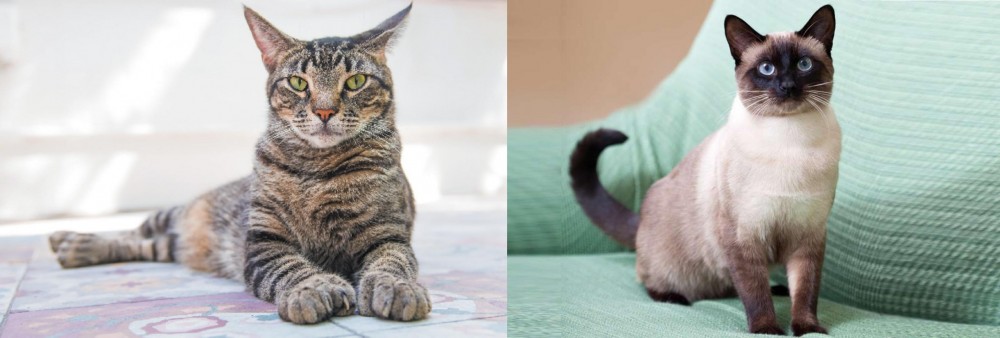 American Polydactyl is originated from United States but Traditional Siamese is originated from Thailand. Both American Polydactyl and Traditional Siamese are of same weight. American Polydactyl may live 4 years less than Traditional Siamese. Both American Polydactyl and Traditional Siamese has same litter size. American Polydactyl requires Low Maintenance. But Traditional Siamese requires Moderate Maintenance
American Polydactyl is originated from United States but Traditional Siamese is originated from Thailand. Both American Polydactyl and Traditional Siamese are of same weight. American Polydactyl may live 4 years less than Traditional Siamese. Both American Polydactyl and Traditional Siamese has same litter size. American Polydactyl requires Low Maintenance. But Traditional Siamese requires Moderate Maintenance
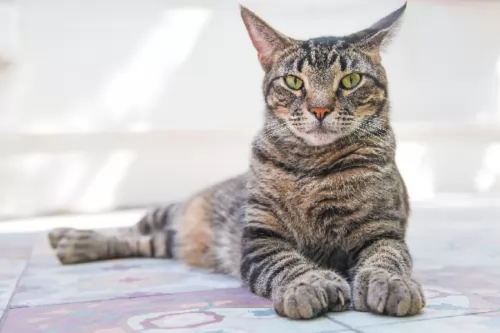 It is believed that this unusual cat came to the United States on ships – kept by sailors who thought of them as a good luck charm and to keep the mice population under control.
It is believed that this unusual cat came to the United States on ships – kept by sailors who thought of them as a good luck charm and to keep the mice population under control.
These unusual cats became popular in the 1800s as ship cats but the cats soon began to be seen in port cities on the Eastern coast of the United States as well as Canada, and their numbers began to increase.
It is also believed these interesting cats were brought specifically to the Boston area.
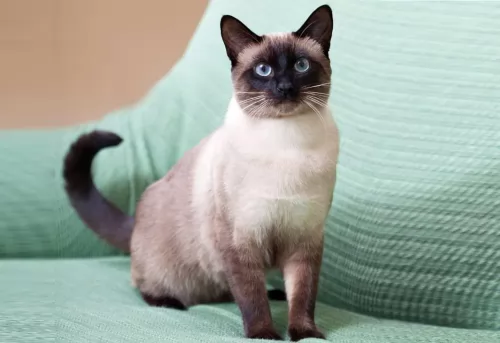 There are now three types of Siamese cats. The Traditional Siamese is said to be the original cat imported from Thailand.
There are now three types of Siamese cats. The Traditional Siamese is said to be the original cat imported from Thailand.
The Classic was the type that was common in the 50’s, 60’s and 70’s. The original Siamese cat became one of the most popular breeds in Europe and North America in the 19th century.
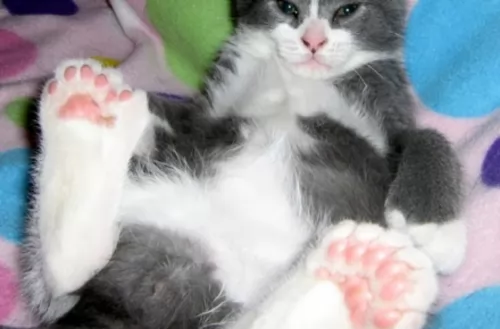 The Polydactyl cat is unusual in that the cat has been born with something odd about it. It has more than the regular number of toes on just one or more of its paws.
The Polydactyl cat is unusual in that the cat has been born with something odd about it. It has more than the regular number of toes on just one or more of its paws.
Normal cats have a sum of 18 toes, with 5 on the front and 4 on the back but with Polydactyl cats you may find as many as 9 digits on their front and back paws.
American Polydactyl cats are medium to large in size with strong, muscular bodies. The cat can weigh up to 6kg. The head is broad, the ears wide-set and pointed and the coat can be any color, pattern and length.
These cats are easy-going, relaxed, and social. They’re hardy too and they’re able to enjoy being outdoors and indoors.
They’re affectionate with their human family and are also playful and energetic. It is prepared to be friendly with dogs and children too, but it is also able to act independently and get on with things. The Polydactyl cat is distinctive but also a very popular cat breed.
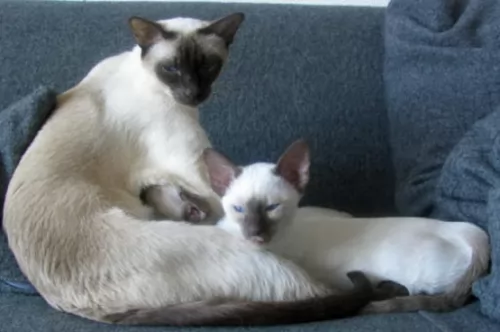 The Traditional Siamese cat is medium-sized, lean, and muscular and weighs between 3 and 6kg. The coat is short and he is considered a medium shedder.
The Traditional Siamese cat is medium-sized, lean, and muscular and weighs between 3 and 6kg. The coat is short and he is considered a medium shedder.
The kittens of these cats are born white and the coloring comes in over the next days and weeks. The head of the Traditional Siamese is well proportioned to its body size.
The medium size ears are slightly rounded at the tip and the eyes are large and bright blue in color.
The coat is short, sleek, and soft and accepted colors are cream with chocolate, brown, lilac, red, tortie or blue points.
The personality of the Traditional Siamese is loud, vocal, and demanding. These cats let you know precisely what they want and it is almost like having a human companion in the house.
They love to give their human owners lots of attention as well. They’re intelligent, curious, playful, and energetic.
The Traditional Siamese cat isn’t really recognized by the Cat Fanciers Association (CFA) anymore as the breed’s temperament has changed so much.
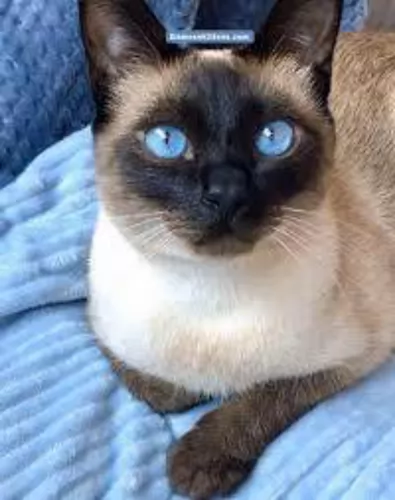 The Traditional Siamese cat is such an amazingly intelligent animal and sometimes they can become quite human.
The Traditional Siamese cat is such an amazingly intelligent animal and sometimes they can become quite human.
These are not your traditional cool, independent, sleep all day kind of felines and people liken them to having a dog as a pet. They love to play, and they are so active you could even put a leash on one and take it for a walk.
They are energetic, local, and lively. They are such affectionate cats too and they get on well with children and with other pets.
When you bring a Traditional Siamese cat into your life, it is like you are bringing in a human companion, except that the Traditional Siamese is far more amicable than many humans.
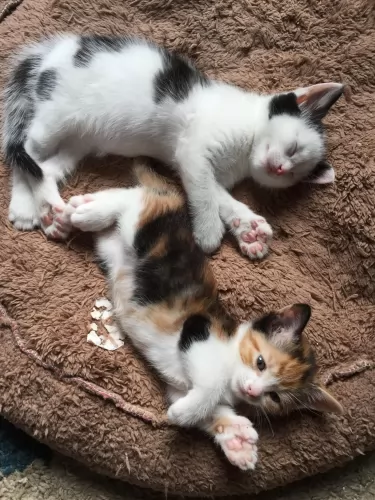 With good care, these cats can live to be between 14 and 16 years of age. You need to be diligent with keeping this cat’s nails trimmed because depending on the placement of the toes, the nails could become a nuisance, growing in the wrong direction and cutting into he cat’s flesh.
With good care, these cats can live to be between 14 and 16 years of age. You need to be diligent with keeping this cat’s nails trimmed because depending on the placement of the toes, the nails could become a nuisance, growing in the wrong direction and cutting into he cat’s flesh.
Keep the nails trimmed as necessary. To avoid possible injury to your pet, your veterinarian can safely trim your cat’s claws.
Always pay attention to your cat's behavior as well as taking note of your cat when you groom him as both are good ways to discover whether anything is amiss with your polydactyl cat.
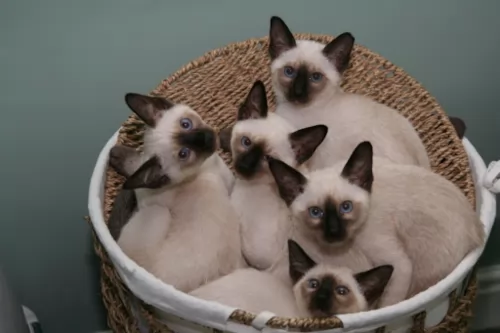 Avoid obesity. Siamese cats are prone to obesity and these slim cats can’t afford weight gain. Extra weight can put a whole lot of pressure on the cat’s joints and they can also develop other problems such as diabetes. The label of the commercial cat food you give your Traditional Siamese will indicate how much food your cat should get a day based on your cat’s weight.
Avoid obesity. Siamese cats are prone to obesity and these slim cats can’t afford weight gain. Extra weight can put a whole lot of pressure on the cat’s joints and they can also develop other problems such as diabetes. The label of the commercial cat food you give your Traditional Siamese will indicate how much food your cat should get a day based on your cat’s weight.
Diet plays a massive role in the health of a cat, and inferior cat foods can mean you spending more money at the vet because of digestive issues.
If you are in any kind of doubt as to what to feed your cat, rather speak to your vet about what and how much to feed him. Your cat is a carnivore and it is most important to feed your cat foods high in protein.
Take your cat to the vet whenever he is sick and also just for a general check-up. You want to make sure that your Traditional Siamese is free from any health problems as well as parasites.
Also, make sure your cat is always up to date with his vaccinations as there are some cat illnesses such as feline panleukopenia, also known as distemper, that can kill your cat.
It is always a good idea as well to spay or neuter your Siamese to prevent unwanted pregnancies.
If your Traditional Siamese has any health conditions, your vet can help provide you and your pet with a treatment program.
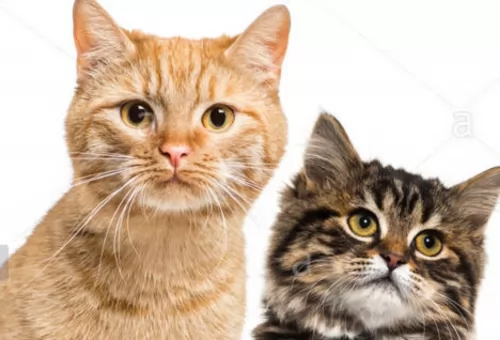 Keep an eye on your cat’s paws as their extra toes can make it that they are at a higher risk of hooking on a carpet or some other material, but this can be managed with regular nail trimming.
Keep an eye on your cat’s paws as their extra toes can make it that they are at a higher risk of hooking on a carpet or some other material, but this can be managed with regular nail trimming.
Provide your cat with all the things he needs to make his life pleasant while in your care. He’ll need feeding and drinking bowls, a nice warm, dry bed, a litter box, stimulating toys, and things such as a scratching post and cat climbing tree.
Cats are meat-eaters, and they need protein from meat for health. Some cooked chicken and beef can be a real treat for your pet. Grains and carbohydrates should only play a very small role in your pet’s diet. Too many grains can lead to malnutrition and obesity as well as problems with your cat's organs.
Always take into account your cat’s age because different life stages mean different energy levels and therefore different nutritional needs.
Take your sick cat to the vet when you see he is not his usual self. Make sure you keep up to date with all his vaccines and anti-parasite treatments.
One of the most important health decisions you’ll make for your Polydactyl cat is to have your pet spayed or neutered. The procedure is common and performed in your vet’s office every day.
It offers lifelong health benefits. It improves your pet’s behavior and keeps them close to home too. Spaying a female cat will prevent uterine infections and breast cancer, and for males, it can prevent testicular cancer.
Best of all, it helps to prevent yet more kittens into a world overrun with stray cats and rescue centers jam-packed with unwanted kittens and cats.
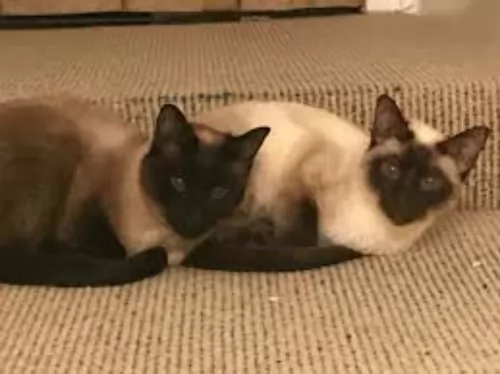 To care for your Traditional Siamese, you need to feed him a high protein diet. Always read the labels of the cat food you buy to ensure that the proteins included come from animal sources and not from plants.
To care for your Traditional Siamese, you need to feed him a high protein diet. Always read the labels of the cat food you buy to ensure that the proteins included come from animal sources and not from plants.
Brush your Traditional Siamese cat regularly. He has a short coat so once a week will be enough to keep it shiny and clean.
You can feed your cat and provide all he needs, but nothing will be more important to your cat than showing your love for him by spending lots of time with him and showering him with love.